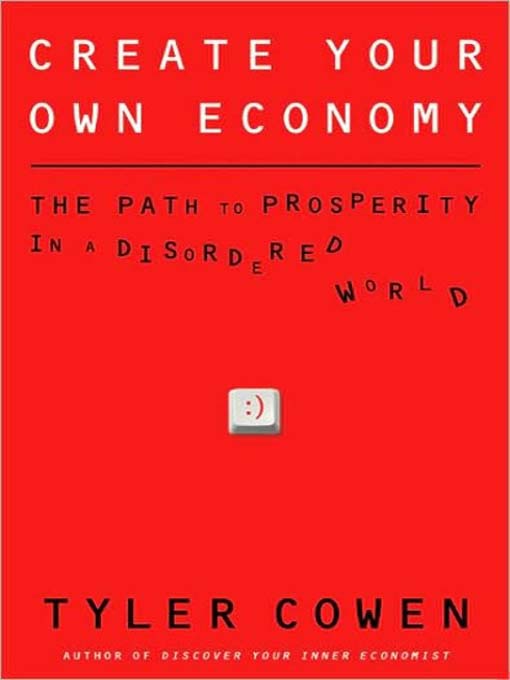
Create Your Own Economy
The Path to Prosperity in a Disordered World
فرمت کتاب
audiobook
تاریخ انتشار
2009
نویسنده
Patrick Lawlorناشر
Tantor Media, Inc.شابک
9781400182190
کتاب های مرتبط
- اطلاعات
- نقد و بررسی
- دیدگاه کاربران
نقد و بررسی

Patrick Lawlor tackles this study in behavioral economics with ease. His upbeat narration keeps the pace moving through Cowen's extensive explanations and arguments regarding the methods of mental ordering and data organization used by autistic people and what they can tell us about how people in general use information. Since autism is a thorny topic and Cowen argues that most of what most people know about it is incorrect, there are many quotations--which Lawlor endeavors to set apart by adopting an appropriate accent and tone for the original writer. While this approach successfully differentiates the quotations, the transitions are a little abrupt, though this is a minor distraction. Overall, Lawlor's clear delivery and well-timed pauses keep his fast-paced narration manageable. E.N. (c) AudioFile 2010, Portland, Maine

May 18, 2009
In this provocative study of behavioral economics, Cowen (Discover Your Inner Economist
) reveals that autistic tendencies toward classification, categorization and specialization can be used as a vehicle for understanding how people use information. Cowen spends a great deal of time dispelling autism’s societal stigma, arguing that “mainstream society is reaping benefits from mimicking autistic cognitive strengths.” As stimulating as is the premise, the book often feels like its own long exercise in categorization, with each chapter an analysis of the human mania for classification (e.g., the obsession with ranking achievements and endeavors). According to Cowen, human brains are constantly absorbing bits of information that get smaller and are delivered faster as technology advances. The more information people receive, the more they crave—this shorter attention span is far from a flaw to the author, but a liberating mechanism that allows humans time to contemplate more ambitious, long-range pursuits. The relentless analysis is occasionally overwhelming, but Cowen’s illustration of our neurological filing system may help readers understand the mass consumption of information and just about everything else.

























دیدگاه کاربران